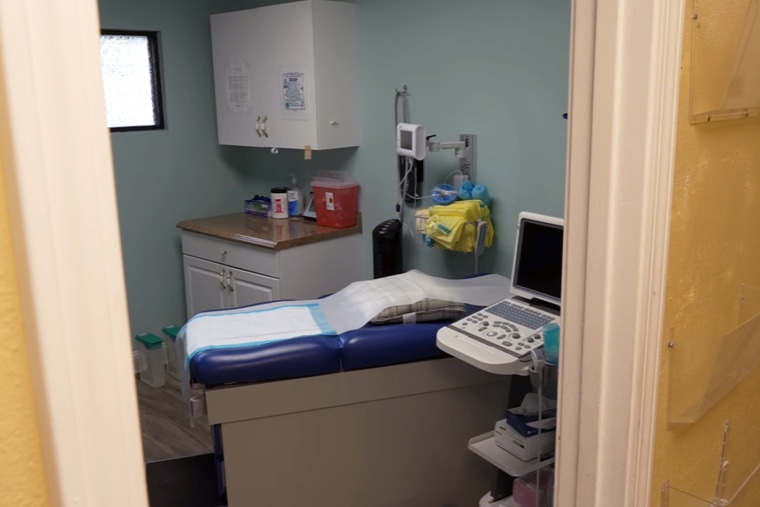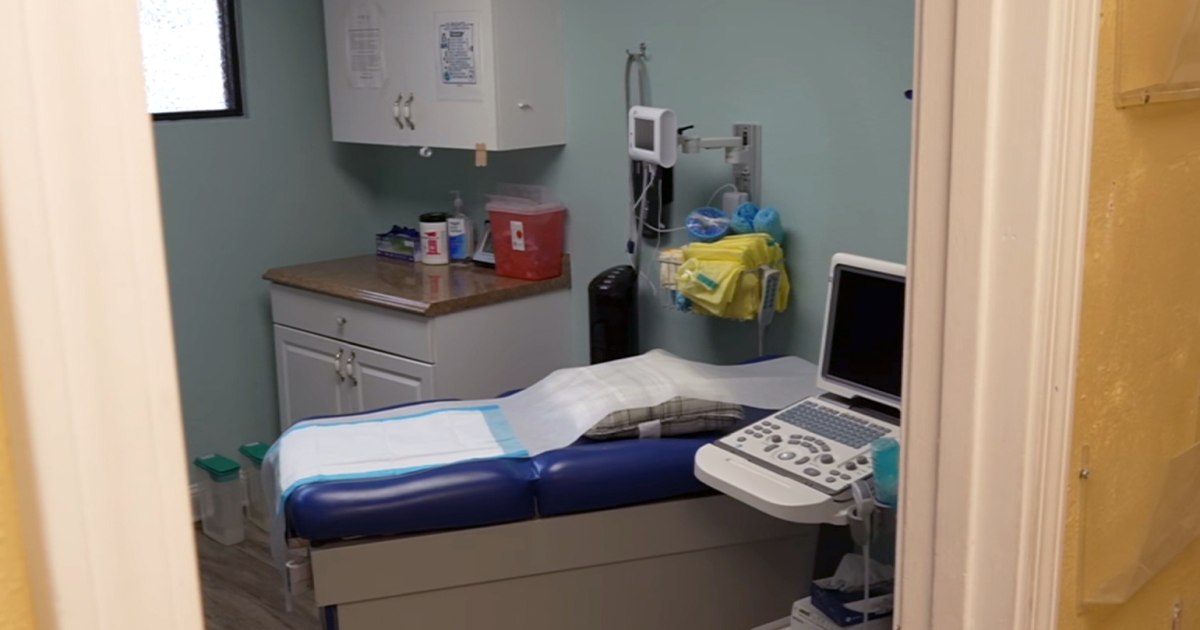A law prohibiting abortions after six weeks of pregnancy went into effect in Florida this Wednesday, just after midnight.
Until now, the state had been a safe place for access to the procedure in the southern United States, after the Supreme Court overturned the historic Roe v. Wade.
Florida banned abortions after 15 weeks of pregnancy in 2022, but most of its neighboring states have even more severe restrictions. That's why more than 9,300 people traveled there last year to have the procedure performed.
That number is more than double the 2020 numbers, according to data from the Guttmacher Institute, a research organization that supports abortion access. At least 84,000 abortions were performed in Florida in 2023, nearly one in 12 nationally
The new law will reduce that trend. It is now a felony in the state to perform or participate in an abortion after six weeks of gestation, which is about two weeks after missing your period.
The restriction has exceptions for rape, incest and human trafficking up to 15 weeks of pregnancy. State law also allows the procedure when it comes to saving a woman's life or preventing “substantial and irreversible” physical disability, but doctors will still worry about their legal liability.
“(The new law) will cause delays in care that will pose risks or dangers to women's health,” said Dr. Daniel Sacks, who has his practice at the Presidential Women's Center in West Palm Beach.
Fear and confusion over the new law
Abortion providers in Florida worked to see as many patients as possible in the weeks before the restriction went into effect.
They said some were confused about the restrictions and when they would take effect, especially since it has been almost a year since Florida's Republican governor, Ron DeSantis, signed the rule that had been temporarily blocked pending a court ruling. Supreme Court, which last month paved the way for it to become law.
Florida also requires two in-person visits to a clinic, 24 hours apart, before the procedure, a rule that many patients are not aware of.
Cassie, 20, a Florida native who asked that her last name be omitted for privacy, had her first appointment Monday at a clinic in Fort Pierce. She didn't know that the six-week restriction would go into effect two days later.
“I knew they were trying to do it, but I didn't know that it had happened,” Cassie said.
She was less than six weeks pregnant, but acknowledged that she could have easily missed the deadline before the law went into effect. Cassie lives in an RV with her partner and her one-year-old son. Although she wants another child, she can't keep him now, she said.
“I couldn't provide for my son in the best way,” she said. A second child, she said, would make it “difficult to even afford food or pay for small expenses like tires for the vehicle.”
On her way to the clinic on Monday, she stopped to confront someone who was protesting against her intentions to have an abortion.
“The first thing I asked was, 'Will you help me and my family get a mortgage?'”, he said. And she added that she feels sorry for the women in Florida who will have to carry unwanted pregnancies or travel long distances to obtain an abortion.
“It's not right to tell a woman that there is a certain amount of time to have an abortion,” she said. “I wish I could give them a hug and help them.”
Anti-abortion groups are celebrating the new law.
“Florida has taken steps to provide a sanctuary for life, especially for the most vulnerable and provide important financial resources for women with a series of options and resources that could facilitate their decision to choose life,” said Mat Staver, founder and director of Liberty Counsel, a Florida-based legal organization that opposes abortion rights.
Staver mentioned the $25 million the state set aside to expand the Florida Pregnancy Care Network, a group that seeks to persuade women not to have the procedure and offer them advice and resources, but which also has a history of spreading incorrect information or deceptive
The panorama of abortion in the South
Nine Southern states have total abortion bans, and Georgia and South Carolina restrict abortions after six weeks. So for people in Florida and the rest of the Southeast who would like to terminate their pregnancies, the closest options are North Carolina, where they can be done up to 15 weeks, or Virginia.
Florida Access Network, a fund that helps people in Florida pay for the procedure — including appointments, food and transportation — is prepared for a wave of patients who will require assistance to obtain abortions out of state.
“We are living in a new reality where People will be forced to travel long distances to receive care and many do not have the resources or the ability to do so,” said Stephanie Loraine Piñeiro, executive director of the organization.

A Woman's Choice, a Jacksonville-based network of abortion clinics, opened a medical center in Virginia last month in anticipation of the restriction in Florida. It also operates three others in North Carolina, but CEO Kelly Flynn said those locations wouldn't be realistic options for many.
This week, she said, women came to the Jacksonville clinic from places like Mississippi and Louisiana before the restriction went into effect in Florida.
Moving forward, according to Flynn, the network plans to help women in the South understand their few legal options should they need the procedure.
“When they call the center, we will give them that information, we will try to help them with logistics, food, transportation and gas so they can get to North Carolina and Virginia,” he said.

